DOWNTON ABBEY: THE GRAND FINALE (2025)
When Mary finds herself in a public scandal and the family faces financial trouble, the household grapples with the threat of social disgrace.
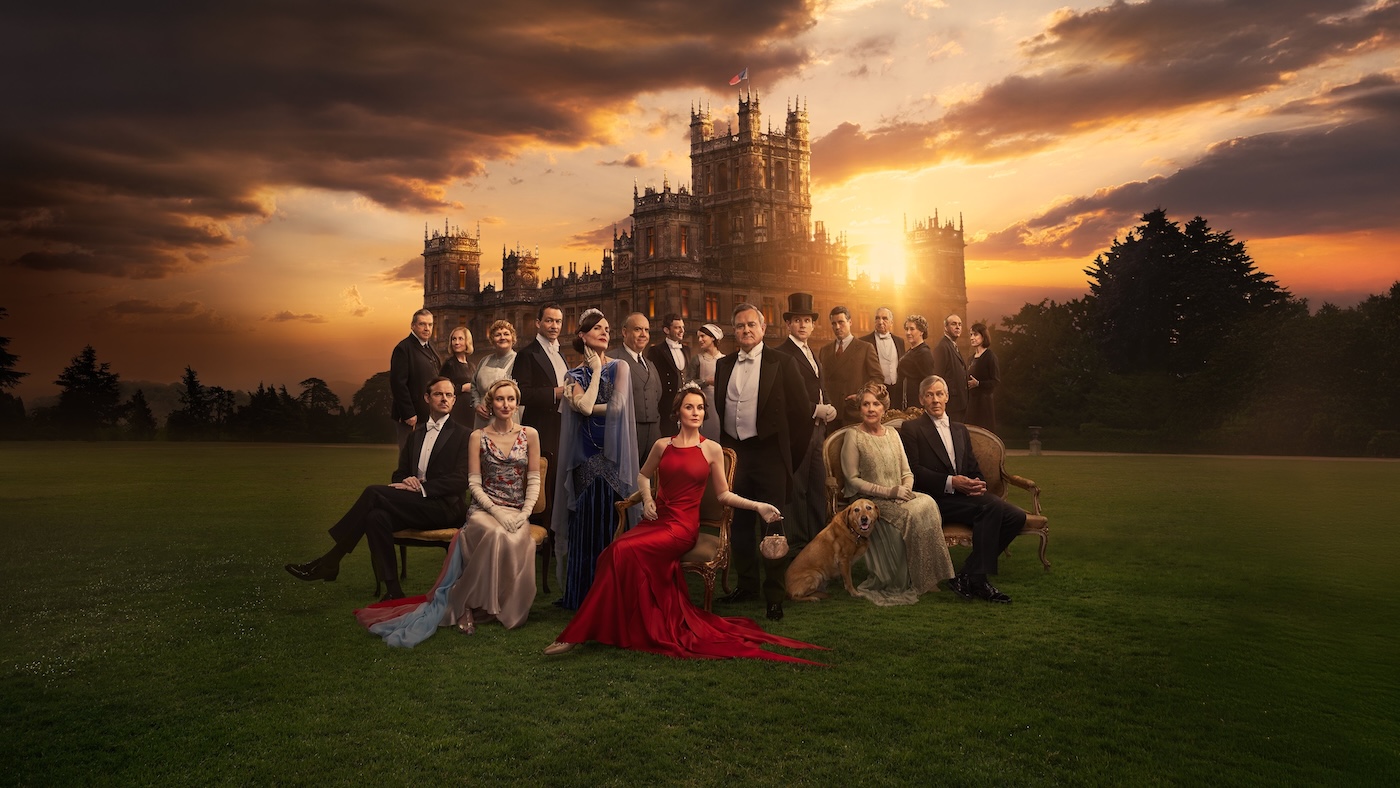
When Mary finds herself in a public scandal and the family faces financial trouble, the household grapples with the threat of social disgrace.

Downton Abbey has been an international sensation since it first graced our television screens in 2010. The soap opera-style period drama, examining the lives of a fictional aristocratic family and their servants during the reign of King George V, rightfully won critical acclaim for its first three series. Though the show suffered after the premature exit of a prominent male star, Dan Stevens, so that he could pursue a film career, the television viewing numbers remained high.
The truth is, by the time the fourth series came around, we members of the audience had become so entrenched in the lives of the Crawley family and their servants that we simply could not let them go. Nor could the show’s creator, Julian Fellowes.
That is why, four years after the final TV series, a Downton Abbey (2019) movie was released in cinemas. That was followed by a sequel, Downton Abbey: A New Era (2022), and now we’ve come to what Fellowes promises will be the final instalment for the Crawley family, Downton Abbey: The Grand Finale.
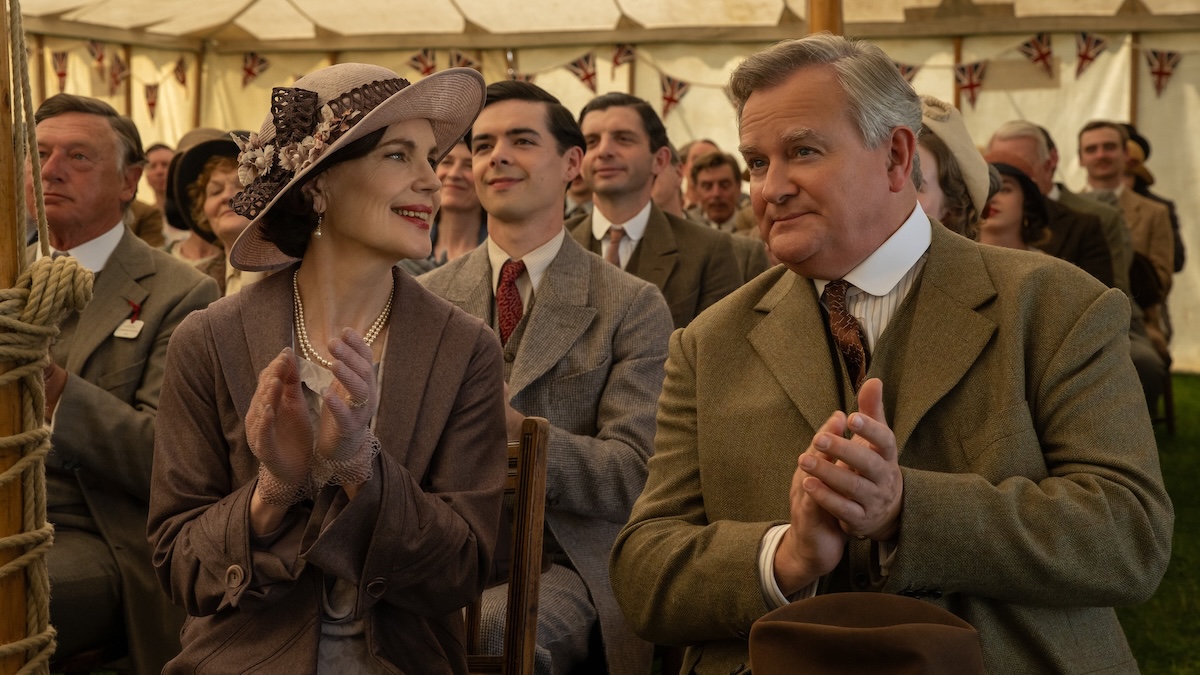
In terms of storylines, there’s less surprise here than in the other two films or even the best episodes of the TV series. The main thrust of the conflict deals with Lady Mary (Michelle Dockery) taking over the management of Downton from her father, Lord Robert Crawley Grantham (Hugh Bonneville). This is complicated by Mary’s divorce from Sir Henry Talbot (Matthew Goode), as a divorced woman during this period was shunned from high society, and Mary duly pays a heavy price. The solution to both issues involves little more than a heartfelt conversation and a helping hand from the famous playwright of the era, Noel Coward.
Where the first two films after the TV finale attempted to create something big to justify the move to the big screen—namely, a visit from the King and Queen in the first film and a new moving picture being filmed on the estate in the second—there’s been no real attempt to create a big new spectacle for this offering. It’s clearly two or three TV-style episodes patched together, minus the cliffhanger endings.
There’s also very little conflict here and almost no villains. The only characters who come close to acting as foils for the main cast are smarmy American businessman Gus Sambrook (Alessandro Nivola) and pompous chairman of the board for the annual county livestock show, Sir Arthur Mooreland (Simon Russell Beale).
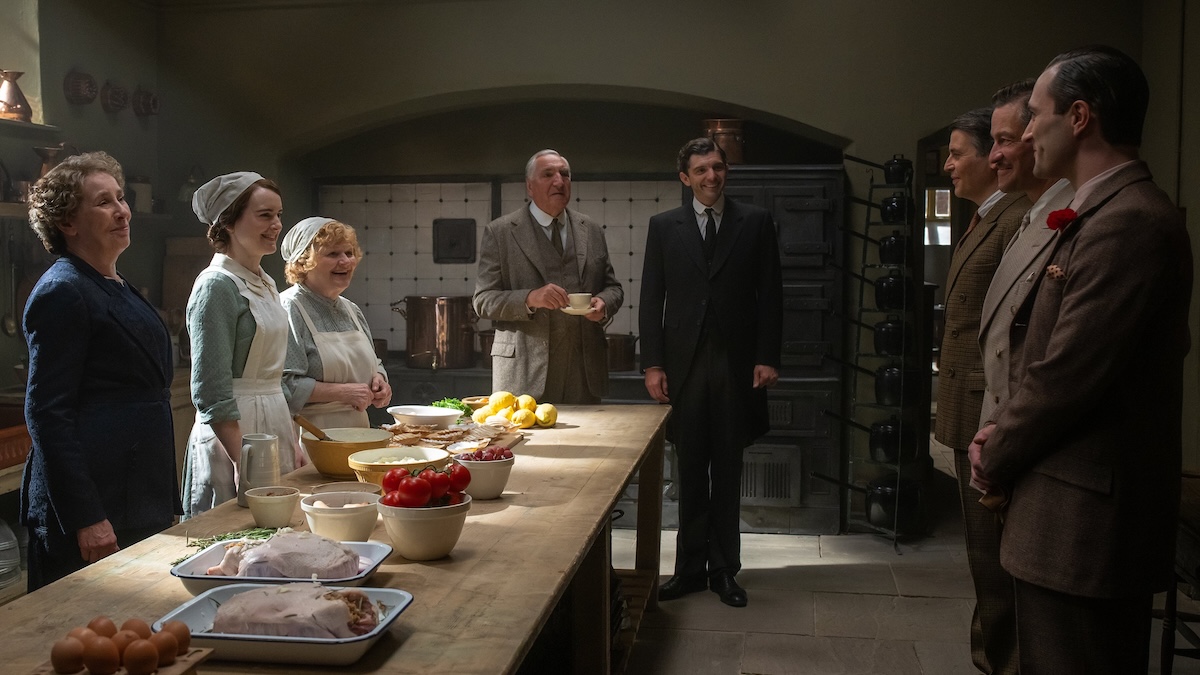
Fans of upper-class battles of wits will find fewer of them with the death of Dowager Countess Violet Crawley (Dame Maggie Smith). That said, Beale does his utmost to bring a sense of old school English class and drama to the proceedings. It’s his presence and pompous performance alone that make the livestock show, which would be a tired and unnecessary side plot, one of the strongest points of the film.
Indeed, though many old favourites, particularly downstairs, are sidelined for the angst involving Lady Mary, Robert, and Downton’s future, the cast still does the best they can with the plot points and script they’re given. And sometimes the writing makes that easy, sometimes it doesn’t.
For example, Joseph Mosely (Kevin Doyle), a former Downton footman and school teacher, is now a screenwriter married to Downton lady’s maid Phyllis Baxter (Raquel Cassidy). Instead of focusing on growing his character through a fulfilling job and finally having the love that he always sought, Fellowes chooses to use his character, once again, to elicit several cheap laughs. The audience can see these joke set-ups a mile away, and while Doyle does a good job with the delivery, even his perfect timing can’t make the gags as funny as they once were.
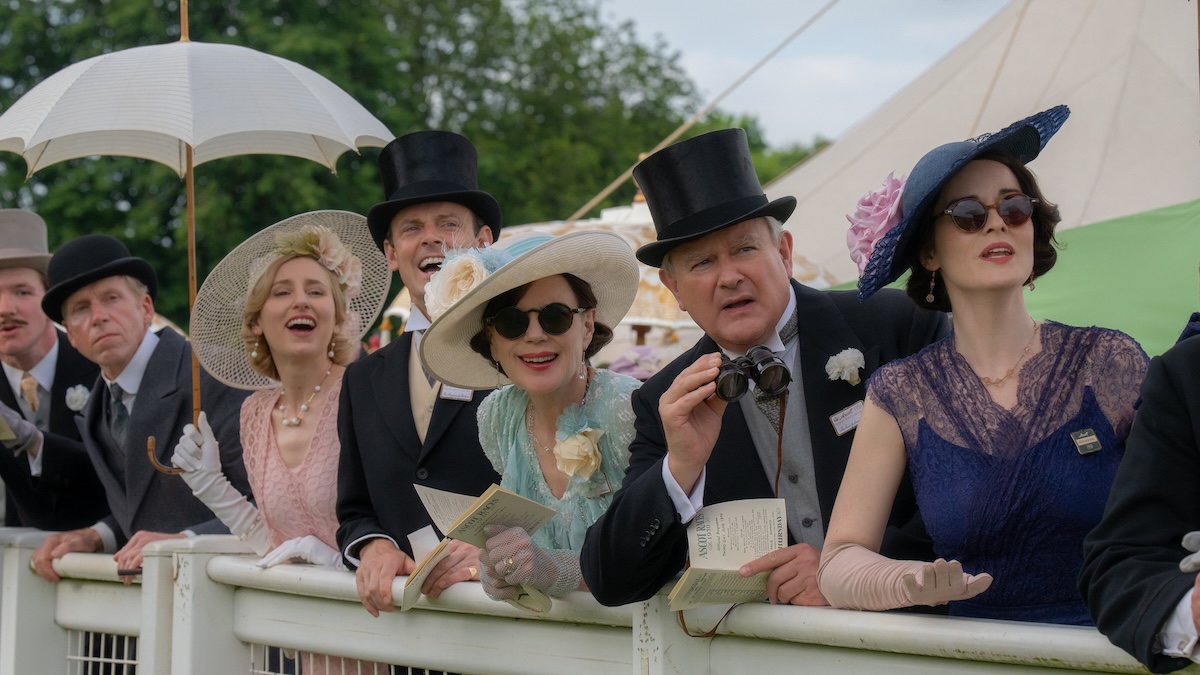
On the other end of the spectrum, we finally did get the character growth for Lady Mary’s sister, Lady Edith (Laura Carmichael), that audiences have been waiting for. Though she was largely tossed aside in the last two films, she clearly comes into her own in this third. We see her cleverly planning to return Lady Mary to respectable society after her divorce and passionately defending her family to Sambrook, who clearly seeks to steal what little fortune they have left. The strength that her position as a Marchioness has given her and the stability that marriage to a good man has left her with sees her character truly come into her own. The change is most evident when she refuses to rise to Lady Mary’s bait during a verbal altercation. Edith, in the first series of the television show, would have struck back harshly at Mary’s careless words. This new Edith takes them in her stride with little more than a roll of her eyes.
Aside from Edith’s character growth, the costume designs are, as they almost always have been, the true stars of Downton Abbey. Impeccable attention to period detail meets with eye-catching colours and perfectly fitted designs that make the audience echo the American Uncle Harold (Paul Giamatti) when he says, “The past always seems so much better. Perhaps because it’s more comfortable.” Everything from the set design to the manners and the costumes in Downton is created to nurture a longing for a bygone era.
In the end, this third film is no more than exactly that. It’s trip back in time to visit old friends. For a filmgoer who’s not a fan of the TV series, or even just a casual observer of it, there’s little reason to take a trip to the cinema to see The Grand Finale. If, however, you adored the series and its characters, you’ll regret missing this last chance to say goodbye the same way you might regret missing a family reunion. It may genuinely be the last time we see these characters. In light of all the joys and sorrows and love they’ve given us over the past 15 years, the least we can do is spend two more entertaining though unsurprising hours with them.
UK • USA | 2025 | 124 MINUTES | 1.78:1 | COLOUR | ENGLISH

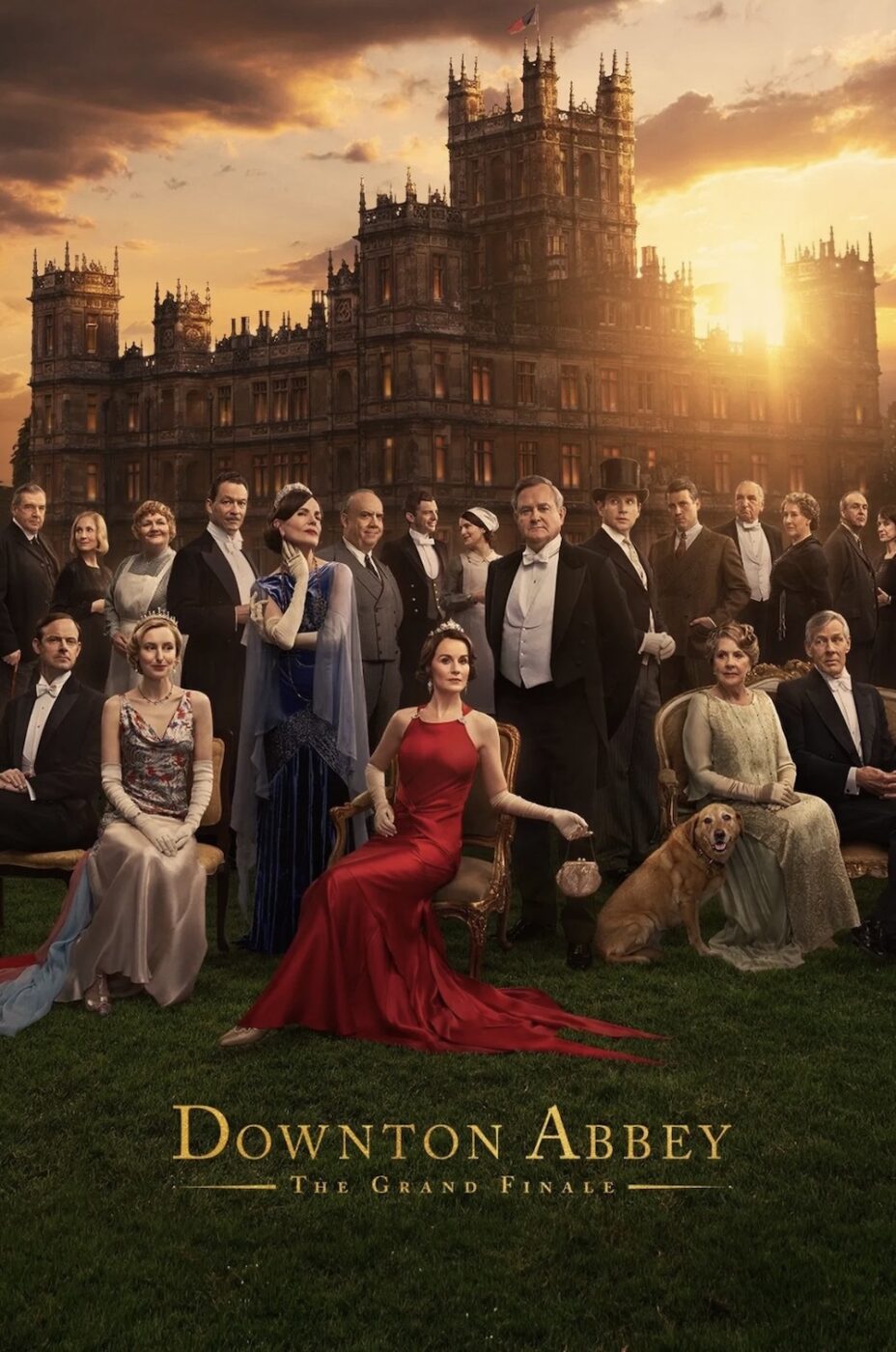
director: Simon Curtis.
writer: Julian Fellowes (based on his TV series).
starring: Hugh Bonneville, Jim Carter, Michelle Dockery, Paul Giamatti, Elizabeth McGovern, Penelope Wilton, Raquel Cassidy, Paul Copley, Brendan Coyle, Kevin Doyle, Michael Fox, Joanne Froggatt, Harry Hadden-Paton, Robert James Collier, Allen Leech, Phyllis Logan, Sophie McShera, Lesley Nicol, Dominic West, Simon Russell Beale, Arty Froushan, Alessandro Nivola, Joely Richardson & Douglas Reith.
